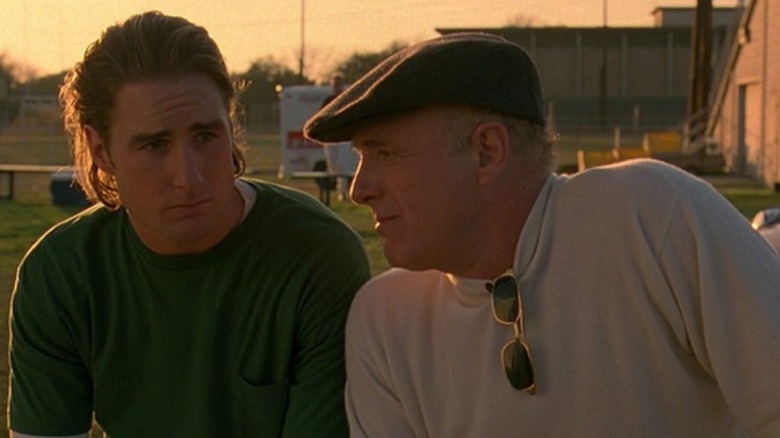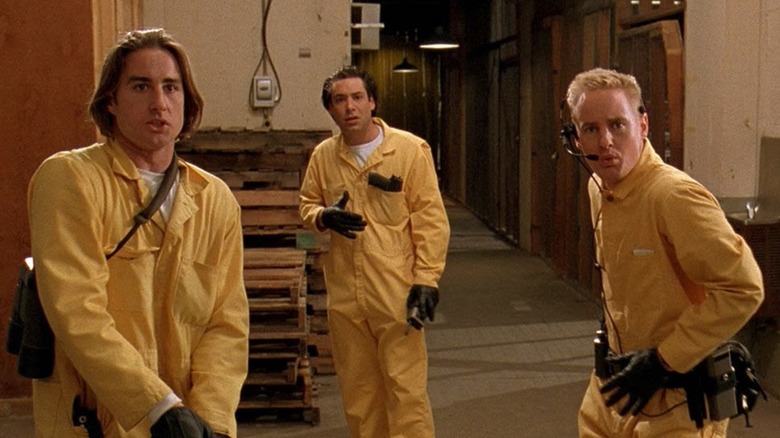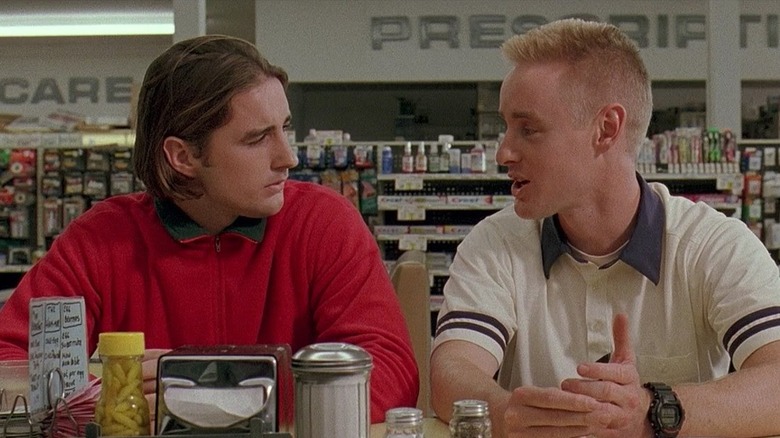One Of Wes Anderson's Earliest Films Is A Personal Favorite Of Martin Scorsese
There are few living directors with greater legacies than Martin Scorsese. The director of "GoodFellas," "The Wolf of Wall Street," and "The Departed" is held in extremely high regard by critics and audiences alike, and you have to imagine any directors who were coming up during his career looked up to him a whole lot.
Scorsese isn't afraid to publicly praise movies he enjoys, as he recently did with Ti West's "Pearl." He also hasn't been afraid to call out trends in filmmaking that he doesn't like. After saying that he doesn't consider Marvel films "cinema" in 2019, Scorsese received so much backlash online that he had to write a New York Times opinion piece to clarify his stance.
When there's a titan of the industry just floating around saying what films he likes and dislikes, it has to be a bit nerve-wracking for young directors to imagine what someone of Scorsese's stature would think of their work. Luckily for Wes Anderson, he received Scorsese's blessing on one of his earliest, lesser-known films, "Bottle Rocket," something that had to have felt good for the burgeoning director.
Marty's endorsement
When Wes Anderson released "Bottle Rocket" in 1996, he was not the well-regarded director he is today. It was his first ever feature film, and despite its good reviews, it was not a box office success by any means. This along with a nightmarish experience at the movie's premiere likely shook the confidence of the young Anderson.
But then Martin Scorsese saw "Bottle Rocket." He loved it so much that he would eventually name it one of his favorite films of the 1990s. He recalled how he felt seeing the movie for the first time in a piece he wrote for Esquire in 2007.
"Here was a picture without a trace of cynicism, that obviously grew out of its director's affection for his characters in particular and for people in general. A rarity. And the central idea of the film is so delicate, so human: A group of young guys think that their lives have to be filled with risk and danger in order to be real. They don't know that it's okay simply to be who they are."
To read that Martin Scorsese not only liked his film, but was emotionally touched by it, had to have been a surreal experience for Anderson. Scorsese doesn't distribute this kind of rave review lightly, so to earn Scorsese's approval on such a public stage is really an honor.
The first Wes Anderson
Anderson addressed some of Scorsese's comments about him at the Rome Film Festival in 2015, including comments where Scorsese called him "the next Scorsese." Anderson spoke on the subject with a lot of, and maybe too much, humility. "I think he said that a very, very long time ago. I don't know if he feels the same way anymore," said the director, who has since put out such films as "Moonrise Kingdom" and "The Grand Budapest Hotel."
But Anderson recalled being very pleased with Scorsese's compliments, admitting how much of an influence on his work Scorsese had.
"Everybody was hugely influenced by his work, and in all sorts of ways that you can't pin down. And even though with my own movies probably, he might not be the person you would think of right off the bat, in fact he's one of the reasons why I thought cinema is what I'd like to try to do."
I would disagree with the idea that Wes Anderson is the new Martin Scorsese, but not as a way of belittling his work at all. Anderson is more than just the new Scorsese, he's the first Wes Anderson, with a style of filmmaking so unique to himself that you can always immediately tell when a film is his. The endorsement of Martin Scorsese was a telling sign that Wes Anderson would be a great success, and all these years later it's hard to argue that he's anything but.


